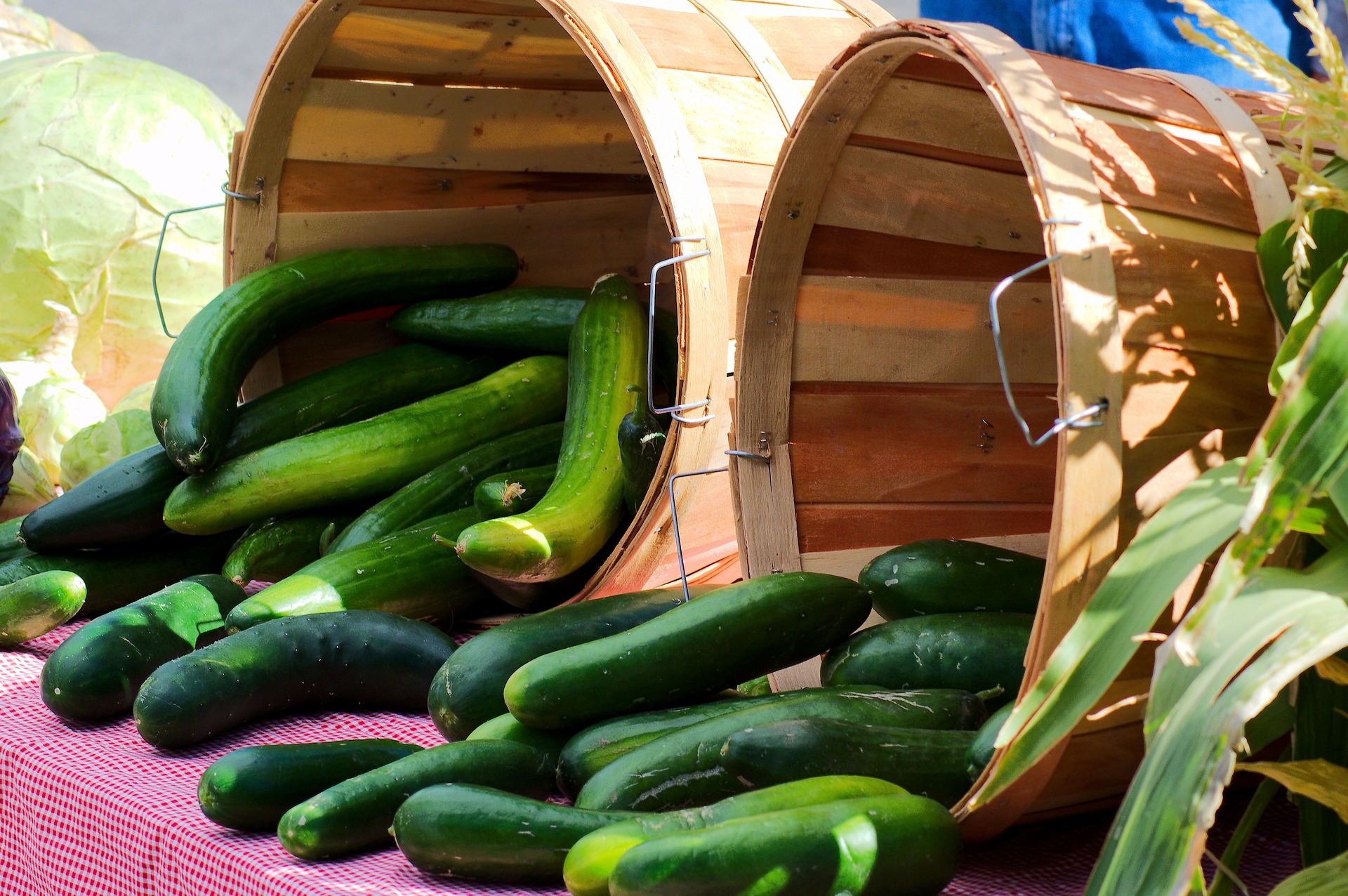Cucumbers, bursting with AllNaturWell goodness, are part of the gourd family. They are edible plants extensively cultivated, offering a nutritious enhancement to diets. While culinary practices often classify the cucumber as a vegetable, its botanical definition as a fruit arises from its origin in flowers and seed-bearing nature.
The Holistic Power of Cucumber: A Comprehensive Guide for Women's Health
This is a bountiful fruit (or vegetable if you prefer) that you definitely want to keep in your crisper draw at all times. Not just because they are delicious but because they are filled with such good stuff for the body that you need to be consuming them daily. And seriously, anyone who is dedicated to self care and cure wouldn’t be caught without them.
Embracing Nature’s Bounty for Holistic Wellness
For women grappling with challenges like ADHD, Bipolar Disorder and/or Rejection Sensitive Dysphoria, the cucumber emerges as a beacon of nourishment, benefiting both the body and mind. In this conversation, we’ll delve into its historical significance, abundant health virtues and practical incorporation into daily life. So, let’s embark on this holistic journey, unlocking the hidden potential of cucumbers.
Medicinal Roots: Cucumber Through the Ages
Cucumbers, esteemed for centuries across cultures, were embraced for their hydration prowess and refreshing essence. With origins tracing back to South Asia, cucumbers symbolize more than just a salad ingredient – they signify healing.
Delving into the historical tapestry of cucumbers reveals a story of reverence and healing that transcends time and culture. For centuries, cucumbers have stood as botanical allies, embraced not just for their culinary attributes but for their profound impact on well-being.
With their origins deeply rooted in the fertile lands of South Asia, cucumbers have journeyed through civilizations, traversing diverse landscapes, and becoming an integral part of various cultural and medicinal practices. In this journey, they have symbolized more than just a mere ingredient; they have embodied a connection between nature and human health.
Cucumbers’ reputation as agents of hydration and refreshment has been a consistent thread throughout history. Their high water content and inherent coolness have rendered them invaluable in combating thirst and providing relief in arid climates. Ancient societies recognized this inherent quality, often using cucumbers to quench parched throats and alleviate heat-induced discomfort.
We must all view cucumbers not just as a summertime salad ingredient, but as carriers of ancient wisdom. Their symbolic significance goes beyond the kitchen, extending to the realms of traditional medicine and holistic well-being. The cucumber’s association with healing is a testament to humanity’s instinctive connection with nature’s offerings.
In Ayurveda, the traditional Indian system of medicine, cucumbers have been acknowledged for their calming and cooling properties, making them an ideal choice for balancing the body’s doshas. Across cultures, cucumbers have been embraced as a natural tonic, celebrated for their ability to detoxify and purify the body.
As we journey through the ages, we realize that the healing attributes of cucumbers aren’t confined to physical well-being alone. Their crisp bite and hydrating nature seem to extend a soothing hand to the mind as well. In the context of single women facing the challenges of ADHD, Bipolar Disorder, or Rejection Sensitive Dysphoria, cucumbers can serve as a reminder of nature’s inherent ability to nurture, restore, and heal.
Incorporating cucumbers into one’s diet can be seen as a symbolic act of self-care, an echo of the ancient understanding that what we consume becomes a part of us – not just on a physical level but on an emotional and spiritual plane as well. Cucumbers, in their simplicity, mirror the profound wisdom that the journey to holistic well-being is a reflection of our connection to the Earth and the resources it offers.
As we embrace the therapeutic journey with cucumbers, we step into the footsteps of generations before us, acknowledging their wisdom and their belief in the power of nature to heal. From their humble origins to their esteemed presence in holistic wellness today, cucumbers stand as a reminder that healing is not just a medical process but a harmonious dance between ourselves and the world around us.
Harvesting Goodness: Selecting the Perfect Cucumber
Determining cucumber quality requires an attentive eye. Opt for vibrantly green specimens with firm skin, a testament to freshness. Reject wrinkled or yellowed options that may indicate aging. Size matters too; choose medium-sized cucumbers for optimal taste. Feel for soft seeds, indicating a less bitter profile.
Daily Consumption: A Slice of Wellness
A daily cucumber consumption of 1-2 units strikes a harmonious chord. However, as with any holistic journey, gradual integration is key. Observing your body’s responses illuminates the path to tailored wellness. (Your food journal will quickly tell you how this new product is working with you.)
The Remarkable Benefits of Whole Cucumbers
- Hydration Haven: Cucumbers’ water content surpasses 95%, bestowing vital hydration for mind and body balance.
- Nutrient Elixir: An abundant source of vitamins and minerals nurtures brain function and holistic vitality.
- Inflammation Alleviation: Antioxidants within cucumbers contribute to quelling inflammation, which resonates well with ADHD and Bipolar Disorder management.
- Gut Guardian: Fiber content fosters gut health, potentially easing discomfort linked to Rejection Sensitive Dysphoria.
- Easing Emotional Turmoil: B-vitamins within cucumbers can assist in tempering emotional highs and lows.
- Weight Wellness: With a low-calorie profile, cucumbers play a role in weight management.
- Skin Serenity: Silica’s presence promotes healthy skin, uplifting self-confidence.
- Detox Delight: Cucumbers, embracing detoxification, foster holistic mental health.
- Balancing Blood Sugar: Cucumber compounds aid in stabilizing blood sugar levels.
- Heart’s Harmony: Potassium’s embrace supports heart health and blood pressure equilibrium.
Pros and Cons: The Cucumber Dichotomy
Pros:
- Sustaining Hydration
- Rich Nutrient Content
- Inflammation Management
- Weight Watchers’ Ally
- Gentle Digestive Aid
Cons:
- Potential Digestive Discomfort (in excess)
- Pesticide Exposure (opt for organic when feasible)
Empowering Through Culinary Creativity: Cucumber Recipes
1. Cucumber and Mint Infusion:
- Gently slice cucumbers and drop them into a pitcher of water.
- Introduce fresh mint leaves for a delicate flavor twist.
- Let the blend infuse overnight for a revitalizing and detoxifying tonic.
2. Yogurt and Cucumber Delight:
- Dice cucumbers and blend them with yogurt.
- Add chopped herbs, a dash of lemon juice, and a hint of salt.
- Relish this nourishing, quick-to-prepare salad.
Preserving Nature’s Gift: Cucumber Storage Tips
To extend cucumber longevity:
- Store in the refrigerator’s vegetable compartment.
- Isolate from ethylene gas-emitting fruits to prevent premature spoilage.
Mindful Culmination: A Journey of Self-Care
As you immerse yourself in the holistic world of cucumbers, remember, this journey is as much about self-discovery as it is about nourishment. Progress gradually, embracing the nurturing power of cucumbers. Every bite resonates with self-care, every step is a stride towards a balanced existence. May your path be vibrant and your wellness, profound.
Disclaimer: The information and/or products mentioned in this article are provided as information resources only and are not to be used or relied on to diagnose, treat, cure or prevent any disease. The statements made in this article have not been evaluated by the Food and Drug Administration. Any products mentioned are not intended to diagnose, treat, cure, or prevent any disease, but rather to be considered as an informational resource only to encourage critical thinking and personal research. The information in this article is intended for educational purposes only. The information is not intended to replace medical advice offered by licensed medical physicians. Please consult your doctor or health care practitioner for any and all medical advice.




